 Jeon Hye Won confirmed to play the role of Shin Min Ah's colleague in a new K-drama
Jeon Hye Won confirmed to play the role of Shin Min Ah's colleague in a new K-drama A love-story between a noblewoman and a mysterious man who shows up in her hometown set in the 1600s during the Qing invasion. Yu Gil Chae is a pretty, bubbly, and a bit spoiled young lady who's called the 99 tailed fox of Neunggun-ri. She is also a bit of an outcast because other young ladies are jealous of her. They seem to think she's too straightforward and her behavior is inappropriate for a young lady, while young noblemen think highly of her. Gil Chae knows how to get men to fall for her but fails to capture the heart of the person she likes. Lee Jang Hyun is a mysterious man who suddenly appears in the Neunggun-ri social scene. Nobody really knows anything about him. Young nobles don't like him, but the elderly are wrapped around his finger. He's been dating around a lot, but he becomes curious about a certain 99 tailed fox, and one day, the said fox quite literally crash lands into his arms. Once war is brewing, the pair finds themselves separated before they could even start to make sense of their feelings. (Source: soloTraveler at MyDramaList) Edit Translation
- English
- Arabic
- Українська
- Español
- Native Title: 연인
- Also Known As: My Dearest Part 1 , My Dearest 1 , Lovers 1 , Yeonin 1 , 연인 파트 1 , 戀人1
- Screenwriter: Hwang Jin Young
- Director: Kim Sung Yong, Lee Han Joon
- Genres: Historical, Romance, Drama, Melodrama
Where to Watch My Dearest
Cast & Credits
- Namkoong Min Main Role
- Ahn Eun Jin Main Role
- Lee Hak Joo Main Role
- Lee Da In Main Role
- Kim Yoon Woo Main Role
- Park Kang Sub Support Role
Reviews

Unparalleled
In my 17 years of indulging in Asian dramas, I've had the privilege of encountering a multitude of captivating stories, characters, and narratives. However, I must say, the drama I've recently stumbled upon has left an indelible mark on me and has already etched its place among the finest pieces of Asian drama that I've ever had the pleasure of watching.What sets this drama apart is its remarkable ability to ensnare your emotions and weave a tale so compelling that you find yourself becoming genuinely attached to every single character. This is no ordinary feat, and it's a testament not only to the spectacular writing but also to the deft direction that brings this world to life. The way the palette transitions from soft hues during peaceful times to somber greys during the throes of war is nothing short of artistry. The portrayal of the real war scenes is so vivid and evocative that it transports you right into the heart of the chaos.
The mastery with which the war's tension and thrill are handled reminds me of the standards set by productions like "Kingdom" and "Train to Busan." The sword fighting sequences, choreographed with breathtaking precision, stand tall as some of the best I've witnessed in all my years of watching Asian dramas.
But the true brilliance of this drama doesn't stop at its direction or action; it extends to the acting prowess of its cast. Namkoong Min, a name synonymous with exceptional acting, delivers a performance that transcends mere entertainment. His portrayal captures every microexpression, every subtle thoughtfulness, and a range of emotions from endearment to caution, from a burning desire for revenge to moments of jealousy. It's a masterclass in the art of emotive storytelling.
And then there's the female lead who defies expectations and stereotypes with grace and intelligence. The 99-tailed fox who emerges as an unexpected hero, shattering preconceived notions. She evolves far beyond the anticipated role and emerges as an emblem of strength and depth, reminiscent of iconic characters like Scarlet O'Hara from "Gone with the Wind," yet imbued with a uniqueness that makes her SO MUCH more.
This drama is not something to be missed, and it certainly defies any preconceived notions of what a "mere drama" entails. It's a culmination of meticulously crafted, movie-worthy episodes that seamlessly blend to create an unforgettable narrative tapestry. The way it engages the audience, drawing them into a world so rich and multifaceted, speaks volumes about its caliber. It's a gem that shines brilliantly among the vast sea of Asian dramas, an experience that lingers long after the final scene.

Ambitious & powerful historical epic done with perfection - right down to the supporting roles
Wow! Historical epic. Visually stunning. Magnificent. What starts out harmless is caught up in the merciless story. Please buckle up. "My Dearest" goes all out. Thrilling! Moving! Intoxicating.The excursion leads into a painful chapter of Joseon's past, its historical cornerstones being emotionally successfully captured in striking scenes. Already after the third episode one may have forgotten the harmlessly rocking swings... back when everything was right with the world. On the other hand, the worst at times brings out the best in people. This may certainly be true for our protagonists, because the more hopeless the circumstances, the more persistent their personal commitment.
A dramatic story. A moving love story. An excellent historical drama. Definitely worth seeing. The time around the Qing invasion on the Joseon Peninsula will remain unforgettable for everyone... and the epic relationship of our protagonists too!
What a couple - in the course of their encounters, Namgoong Min and Ahn Eun-jin develop a strong, charismatic attraction for their ambivalent and baffling, yet complex and nuanced characters. All this is visually perfectly staged. Perfection applies overall to the dramaturgical layout of the intertwined personal and political processes. "My Dearest" offers differentiated, touching character portraits right down to the supporting roles. Powerful!
Unfortunately, after the tenth episode, we're stuck for a while before we continue with the second season... But until then, as far as I am concerned, "My Dearest" has been a complete success!
-----------------------------------------------------------------------
SIDE NOTE --- the Qing invasion 1636 ---
The historical context of “My Dearest” is quite an issue for Joseon history! For the Korean national self-image the impact of the Qing invasion of 1636 can be reckoned even more traumatic, shameful and dramatic than the unparalleled Japanese invasions of the Imjin Wars in 1592 and 1598. This is because Joseon finally had to ignominiously submit to the Qing and eventually remained their vassal state until the First Sino-Japanese War end of the 19th century. (With Imjin Wars, Joseon was actually able to repel their invaders - at that time with the help of the Ming - and thus could preserve the grandeur of sovereignty.) That second Qing invasion in 1636 went down in history as a truly disastrous defeat. Who likes to remember such a 'weak' king and such unspeakably embarrassing humiliation?
Apart from its touching epic love story, "My Dearest" thus also deals with the narrative of the people of Joseon back in the 17th century - their different positions, either pragmatic or idealistic. That time of the invasion is well documented in diaries of contemporary witnesses. Historical scholars to date, however, have discussed the Qing invasions in Joseon mostly from the perspective of the Qing against the Ming and the political power struggles concerning the Chinese empire. In “My Dearest” the Joseon perspective is given its own emotional narrative. And this is characterized by personalities, ideals, value systems, symbolic gestures, as well as those small and large deeds and sacrifices of inconspicuous people who often fall through the cracks of historiography. So "My Dearest" isn't just heartfelt entertainment. To a certain extent, the KDrama has an identity-forming, great mission and takes it very seriously and right into mass consciousness. Its intention is to be suitably great. It offers portraits of the people at that time an how they were processing historically questionable/questioned decisions, too. It brings us close to the dilemma of that time. And greatly so.
-------------------------------------------------------------------------

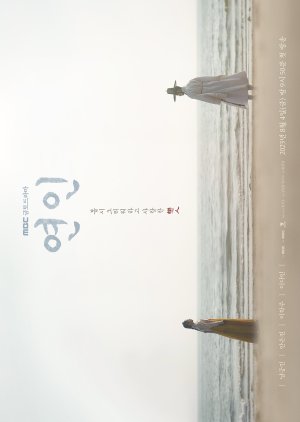









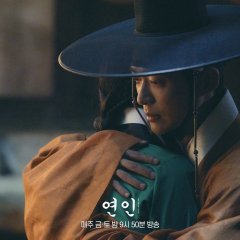
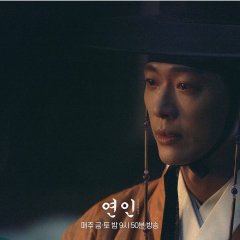
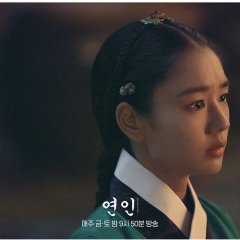
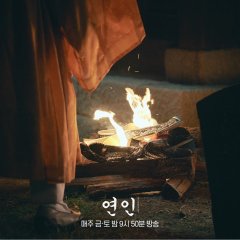

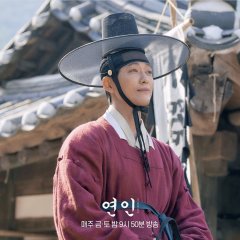
 1
1


































